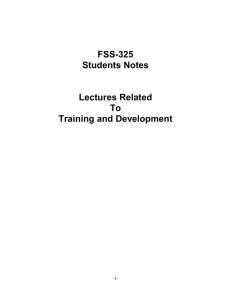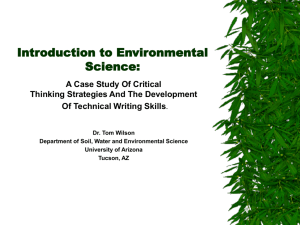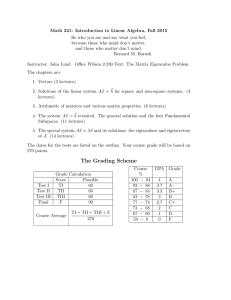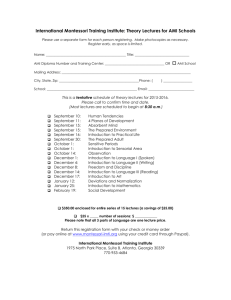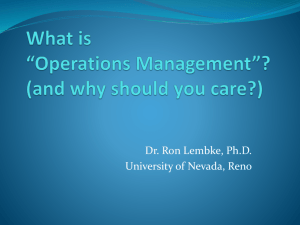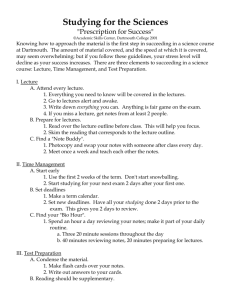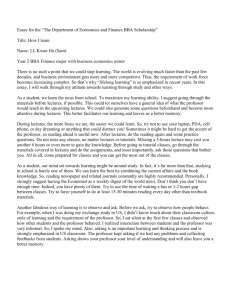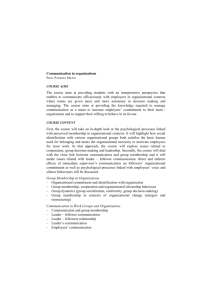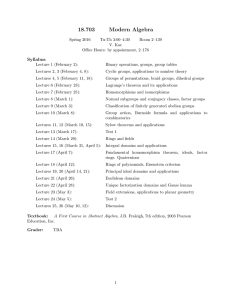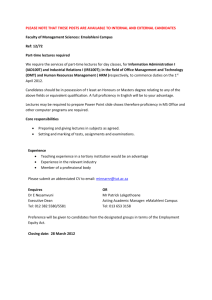Adam White/Andrew Knox, Toronto
advertisement
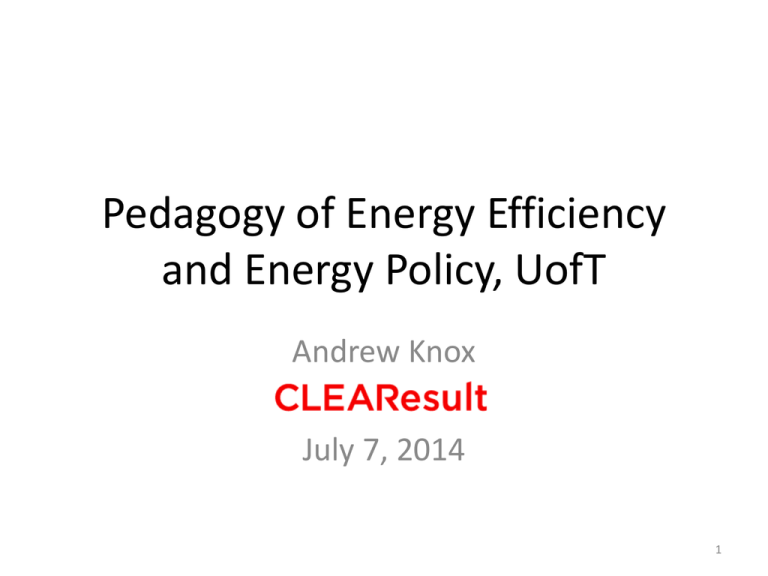
Pedagogy of Energy Efficiency and Energy Policy, UofT Andrew Knox July 7, 2014 1 Reverse Lectures in Energy • “Reverse Lectures” • Watch lectures at home • Do homework in class 2 3 Policy Feud • They’ve seen the lecture on Energy Conservation Technologies • They have to create/advocate for the policies • “Name policies that will promote the use of…” • “Survey says…” Far from paradigm Highly coercive Not coercive Within paradigm 4 Open Space • Again, students have watched lectures • OPEC lecture – Historic origins of a new era in efficiency – Policy as a driver of energy systems • Peak Oil Lecture – Strong motivator for energy efficiency 5 Open Space • Framing question: “What will the future of petroleum use be?” • Other questions arise – Each question forms a breakout session • Students engage in breakout sessions – Students free to go from session to session • Teacher circulates, stimulates, advises 6 Open Space Questions 7 Open Space Questions 8 Open Space Questions 9 What we learned about student learning • Reverse Lectures – Students can study the videos – Open up several kinds of activities – Cover more learning styles • Building the Culture of Conservation – Get students involved – Students can exercise imagination 10 Thank you 11
